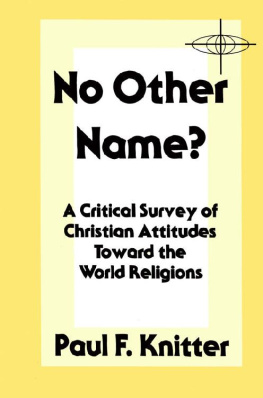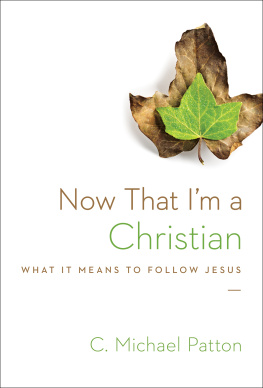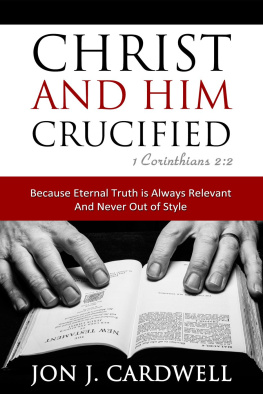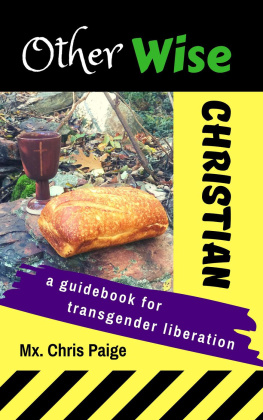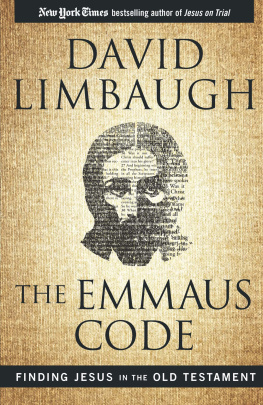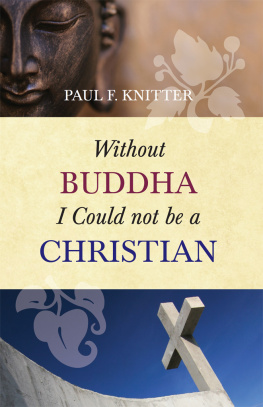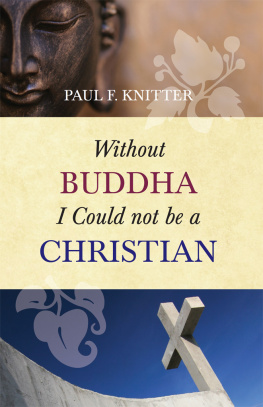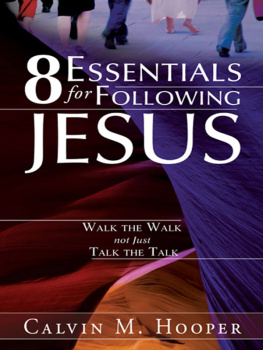
American Society of Misslology Series, No. 7
NO OTHER NAME?
A Critical Survey of Christian Attitudes
Toward the World Religions
PAUL F. KNITTER
Founded in 1970, Orbis Books endeavors to publish works that enlighten the mind, nourish the spirit, and challenge the conscience. The publishing arm of the Maryknoll Fathers and Brothers, Orbis seeks to explore the global dimensions of the Christian faith and mission, to invite dialogue with diverse cultures and religious traditions, and to serve the cause of reconciliation and peace. The books published reflect the views of their authors and do not represent the official position of the Maryknoll Society. To learn more about Maryknoll and Orbis Books, please visit our website at www,maryknollsociety.org.
Copyright 1985 by Paul F. Knitter
Published by Orbis Books, Maryknoll, NY 10545
Manufactured in the United States of America All
rights reserved
Manuscript Editor: William E. Jerman
Library of Congress Cataloging in Publication Data
Knitter, Paul F. No other name?
Bibliography: p. Includes index.
L Christianity and other religionsHistory20th century. 2. Jesus ChristPerson and offices. 3. Religious pluralism. 1. Title.
BR127.K568 1984 261.2 84-16491
ISBN 0-88344-347-3 (pbk.)
ISBN 9781608332021 (ebook)
The American Society of Missiology Series, in collaboration with Orbis Books, seeks to publish scholarly works of high merit and wide interest on numerous aspects of missiology the study of mission. Able presentations on new and creative approaches to the practice and understanding of mission will receive close attention.
Previously published in
The American Society of Missiology Series
No. 1 Protestant Pioneers in Korea, by Everett Nichols Hunt, Jr.
No. 2 Catholic Politics in China and Korea, by Eric O. Hanson
No. 3 From the Rising of the Sun, by James M. Phillips
No. 4 Meaning across Cultures, by Eugene A. Nida and William D. Reyburn
No. 5 The Island Churches of the South Pacific, by Charles W. Forman
No. 6 Henry Venn, by Wilbert R. Shenk
No. 7 No Other Name? by Paul F. Knitter
No. 8 Toward a New Age in Christian Theology, by Richard Henry Drummond
No. 9 The Expectation of the Poor, by Guillermo Cook
No. 10 Eastern Orthodox Mission Theology Today, by James J. Stamoolis
No. 11 Confucius, the Buddha, and Christ, by Ralph H. Covell
No. 12 The Church and Cultures, by Louis J. Luzbetak
No. 13 Translating the Message, by Lamin Sanneh
No. 14 An African Tree of Life, by Thomas G. Christensen
No. 15 Missions and Money, by Jonathan J. Bonk
No. 16 Transforming Mission, by David J. Bosch
To Cathy
Preface to the Series
The purpose of the ASM Series is to publish, without regard for disciplinary, national, or denominational boundaries, scholarly works of high quality and wide interest on missiological themes from the entire spectrum of scholarly pursuits, e.g., theology, history, anthropology, sociology, linguistics, health, education, art, political science, economics, and development, to articulate but a partial list. Always the focus will be on Christian mission.
By "mission" in this context is meant a cross-cultural passage over the boundary between faith in Jesus Christ and its absence. In this understanding of mission, the basic functions of Christian proclamation, dialogue, witness, service, fellowship, worship, and nurture are of special concern. How does the transition from one cultural context to another influence the shape and interaction of these dynamic functions?
Missiologists know that they need the other disciplines. And other disciplines, we dare to suggest, need missiology, perhaps more than they sometimes realize. Neither the insider's nor the outsider's view is complete in itself. The world Christian mission has through two millennia amassed a rich and well-documented body of experience to share with other disciplines.
Interaction will be the hallmark of this Series. It desires to be a channel for talking to one another instead of about one another. Secular scholars and church-related missiologists have too long engaged in a sterile venting of feelings about one another, often lacking in full evidence. Ignorance of and indifference to one another's work has been no less harmful to good scholarship.
The promotion of scholarly dialogue among missiologists may, at times, involve the publication of views and positions that other missiologists cannot accept, and with which members of the Editorial Committee do not agree. The manuscripts published reflect the opinions of their authors and are not meant to represent the position of the American Society of Missiology or the Editorial Committee of the ASM Series.
We express our warm thanks to various mission agencies whose financial contributions enabled leaders of vision in the ASM to launch this new venture. The future of the ASM series will, we feel sure, fully justify their confidence and support.
William J. Danker, Chairperson,
ASM Series Editorial Committee
Preface
All theology, we are told, is rooted in biography. This book confirms that statement. The theology behind the questions and the tentative answers to be examined in the following pages grew out of my own struggles as a Christian believer. The motivation to write this book, in other words, arose not only from the desire to explore a pressing theological problem but, more so, to arrive at a deeper integrity and commitment in my own Christian faith.
For the past twenty years or so, I have felt no small problem in integrating what I have learned and experienced from other faiths with what I have learned from traditional Christian doctrines, especially concerning the uniqueness and finality of Christ and Christianity.
From my experience in the classroom of a Roman Catholic university and in a typical Catholic parish, I know I am not alone; other Christians feel the same problems. This book, I hope, will help them, as it has helped me, to stare those problems in the face and search for new answersanswers that will be faithful both to contemporary experience and to Christian tradition.
The structure of the book reflects the path I have followed in confronting and trying to resolve the question of Christ/Christianity and other religions. Chapter 1 sets the problem: the new experience of religious pluralism in the world of today, the vision many persons have of a new kind of unity and dialogue among religions, and the perplexing questions Christians encounter when they feel themselves drawn toward such a unity and dialogue. Chapters 2 through 4 examine some of the popular attitudes as to why there are so many religions. To some extent, all of us share in or are affected by these widespread common sense opinions: "All religions are limited and cannot judge one another. They all share a common essence or a common source in the human psyche." There is perhaps much sense, common and theological, in these popular views, but they also seem too easy, too sure.
Next page
